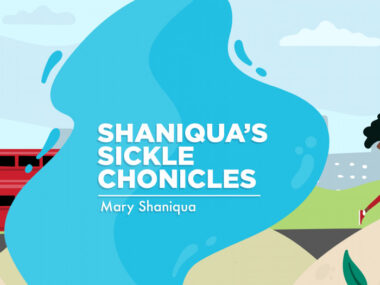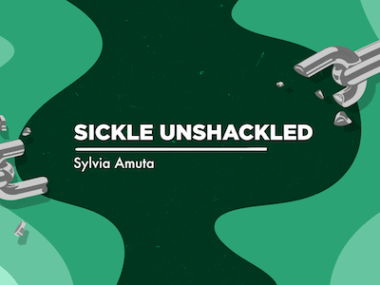Should I Leave My Safe Space?
Written by |

In the past, whenever I had a sickle cell crisis, I often felt like I’d made a mistake. It was my fault that I’d triggered the episode. Thoughts such as “Why did I do that?,” “I am so silly,” and “I never learn” would cycle through my mind. Each crisis made me feel like I had lost the battle against sickle cell disease.
I am naturally competitive, so each crisis, each feeling of loss, would take its toll mentally. Over time I’ve had to accept that crises are part of my journey and shouldn’t be considered losses. Each crisis taught me about triggers and how to avoid them. These actions and lessons have reduced the number of crises I have.
One of my main triggers is stress, and like everyone, I’m subjected to this at different moments. Sources of stress include family, work, finances, world events, and health concerns. I try to manage my stress by working to improve certain aspects of my life. Focusing on my communication, financial literacy, organization, and health, for example, can proactively stabilize my environment.
Getting a grip on stress management has helped me manage sickle cell. Now I’m preemptive: “Will this stressor cause a crisis?”
However, this hyperawareness of potential triggers can also negatively affect my decision-making. Constantly taking precautions can often mean I take the easy or safe way out. I’ve been struggling to find a balance between caution and fear lately.
Am I missing out on significant opportunities because I fear having a crisis, or is my caution genuine?
Life isn’t a narrow lane with predictable turns, and I’m currently faced with a new opportunity that I never expected. This opportunity would significantly affect the stable environment I’ve created. I’d potentially have more stress than I’m used to. Yet it is also an opportunity that will expose me to life experiences that I don’t have in my safe bubble.
Most would see this opportunity as positive, and when I envision myself in someone else’s shoes, I would be silly to turn it down. When I think this way, my mind sometimes drifts to different realities where I don’t have to deal with the risks of sickle cell. I can imagine the adventures I would have. But my reality is that I have sickle cell, and I must prioritize my health when making such decisions.
After much deliberation, I realized that I don’t want to live in fear of the unknown. Sickle cell isn’t going anywhere, so I must learn to make adjustments that will suit me. Yes, I should be cautious and always take into consideration my health. But that doesn’t mean I should continue in my stable bubble.
I’ve already missed out on key events because of sickle cell, and I refuse to always lose to this condition.
How do you weigh difficult decisions when it comes to your health? Please respond in the comments.
Note: Sickle Cell Disease News is strictly a news and information website about the disease. It does not provide medical advice, diagnosis, or treatment. This content is not intended to be a substitute for professional medical advice, diagnosis, or treatment. Always seek the advice of your physician or other qualified health provider with any questions you may have regarding a medical condition. Never disregard professional medical advice or delay in seeking it because of something you have read on this website. The opinions expressed in this column are not those of Sickle Cell Disease News or its parent company, Bionews, and are intended to spark discussion about issues pertaining to sickle cell disease.




K Patel
I am the father. I am trait. One of my two daughters is having the disorder while the other child is trait. My daughter has suffered a lot. Episodes are less after hydroxyurea came to be used as a medicine. The disorder has rubbed her of many opportunities. But still she is quite adventurous and takes many risks within the boundaries. However, I for one is in favour of 0% risk. If there is any slight chance of a crisis in any action, I feel that should be avoided. People with SCD have lived to be 90+ year old. I one could live to that age safely, then others too can.
So, sacrifice, compromise, and adopt sub-optimal performance, if the situation demands!
Dunstan Nicol-Wilson
Hi K. Thanks for your comment and for sharing your perspective as a father of someone with SCD. Yes, I believe others can live till that age too.
Victoria Wolfe
Thank you for this great article, Dunstan. Such great insight, not only for the community that associates itself with SCD, but for all. Self-awareness that drives decision making in ways you describe is powerful, proactive and very personal. Thank you again.
Dunstan Nicol-Wilson
Hi Victoria. Thanks for this comment, I really appreciate it and I am glad you connected with the piece!